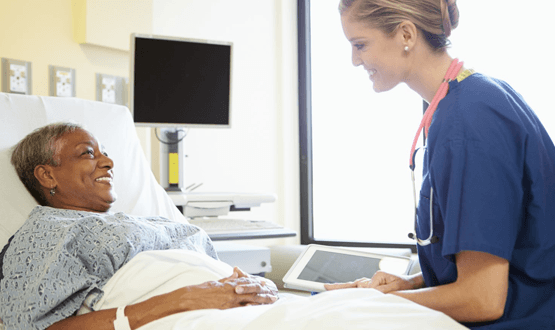Computer equipment could help MRSA spread
- 11 April 2005
Keyboards and computer equipment installed in hospitals may aid the spread of ‘superbug’ bacteria such as MRSA, a study in a Chicago hospital has revealed.
Just touching a keyboard is enough to pick up the bacteria and potentially pass it on to a patient, according to the results of the study. Furthermore, cleaning the equipment with soap and water, according to the manufacturer’s instructions, may not remove the infection.
Dr Gary Noskin, medical director of healthcare epidemiology at the Northwestern Memorial Hospital in Chicago, who carried out the study, told Reuters that the only solution was frequent hand-washing. "Hands are washed before treating a patient, but hand washing prior to computer use is superfluous. Most hospitals are not aware of this."
Dr Noskin’s team contaminated three computer keyboards with common bacteria found in hospitals, namely vancomycin-resistant Enterococcus faecium (VRE) and methicillin-resistant Staphylococcus aureus (MRSA), as well as non-drug resistant Pseudomonas aeruginosa.
While the bacteria that were not resistant to any drugs dissipated after an hour, the two drug-resistant bugs, VRE and MRSA, remained on the keyboard for twenty-four hours.
VRE and MRSA were picked up from the keyboard on the users’ fingers even if they were wearing gloves. The only way the bacterial infections were removed were through sluicing the keyboard with antiseptic; however, this may in the long-term end up damaging the computer equipment.
"The emerging trend in hospitals is to have electronic health records," noted Dr Noskin. "Some hospitals are putting computers in every patient room." He suggested the best way of minimising the risk was for clinicians wash their hands after each time they use a computer before touching a patient.
A spokesperson for the NHS Connecting for Health, the agency responsible for the National Programme for IT in the NHS, told E-Health Insider they were aware of the study, and were working closely with the National Patient Safety Agency in their ‘cleanyourhands’ campaign.
"Clearly patient safety is a top priority for NHS Connecting for Health," said a spokesperson. "We are working with industry leaders in the field, as well as hospital trusts and academia, to ascertain the risks associated with the implementation of IT hardware within the clinical environment.
"Together these parties are working with hardware vendors to specify and deliver innovative and effective solutions to reduce these risks. Early discussions are still in commercial confidence and so we are unable to disclose more detail at this time. "
Dr Noskin presented his findings to a meeting Society for Healthcare Epidemiology of America, the US agency responsible for infection control and prevention.




